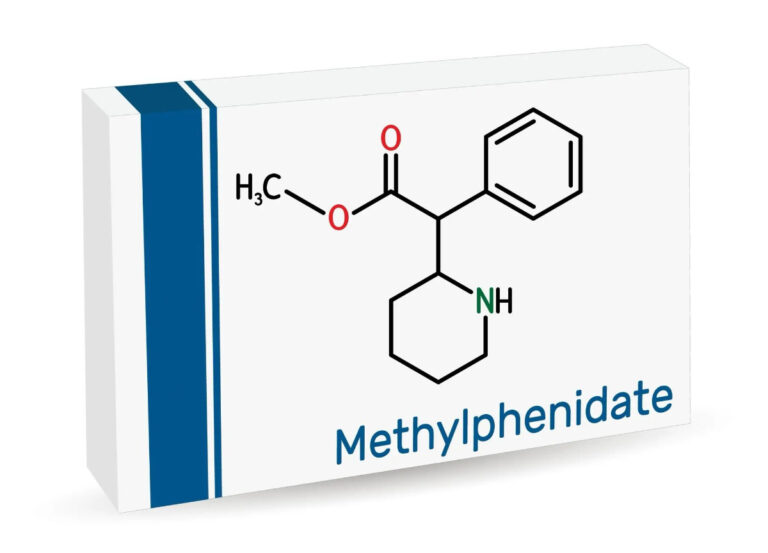Long-Term Effects of Modafinil Use
Modafinil is a prescription medication known for promoting wakefulness. It is primarily approved for use in treating narcolepsy, obstructive sleep apnea (OSA), and shift work sleep disorder (SWSD) (U.S. Food and Drug Administration [FDA], 2015). Beyond its clinical applications, modafinil has gained popularity for off-label cognitive enhancement. However, its long-term effects, particularly in healthy individuals, are not fully understood and warrant careful consideration.
Understanding Modafinil’s Mechanism
Modafinil acts on multiple neurotransmitter systems, including dopamine, norepinephrine, histamine, and orexin, which contribute to its wakefulness-promoting effects (Greenblatt & Adams, 2023). While it may also influence the glutamate system, its full mechanism of action remains only partially understood.
Cognitive Enhancement and Long-Term Use
Memory and Focus
Short-term studies suggest that modafinil may enhance executive function, attention, and working memory, especially in sleep-deprived individuals (Kim, 2012). Some evidence shows benefit in alertness and task performance, making it attractive to students and professionals. However, these effects can vary by individual and task type (Greenblatt & Adams, 2023).
Lack of Long-Term Data
Despite modafinil’s growing popularity, there is limited data on its long-term cognitive effects in healthy individuals. Most existing studies focus on clinical populations with sleep disorders (Mitler et al., 2000; Besset et al., 1996). The absence of large-scale, long-duration studies on off-label use leaves critical gaps in understanding potential cognitive consequences.
Potential Risks and Concerns
Psychiatric and Behavioral Effects
While modafinil is considered to have a low potential for abuse, cases of anxiety, irritability, and mood disturbances have been reported with extended use (FDA, 2015). Psychiatric monitoring is advised, especially for individuals with a history of mental health issues.
Disruption of Sleep Architecture
Long-term or misuse of modafinil could impair normal sleep patterns, particularly slow-wave sleep, which is essential for memory consolidation and emotional regulation (Kim, 2012).
Brain Adaptation and Dependency
There is theoretical concern that chronic use may lead to brain adaptation, potentially reducing baseline cognitive function in the absence of the drug. Although dependence is rare, some users report psychological reliance (Greenblatt & Adams, 2023).
Use in Pediatric Patients
A number of studies have evaluated modafinil in children with narcolepsy and other sleep disorders. These trials demonstrate short- to medium-term safety and efficacy, but there is no published evidence supporting 10-year use in pediatric populations (Besset et al., 1996; Mitler et al., 2000). Therefore, generalizing these results to healthy youth or long-term scenarios is inappropriate.
Ethical and Health Considerations
Accessibility and Misuse
The availability of modafinil online, often without prescription, increases the risk of misuse and exposure to counterfeit or contaminated products. Medical oversight is essential to ensure safety and proper use (FDA, 2015).
Weighing Risks and Benefits
While modafinil may offer short-term performance benefits, individuals must weigh these gains against the potential long-term implications on mental health and sleep. Caution is particularly advised for healthy users using the drug without a medical indication.
Conclusion
The long-term effects of modafinil, especially among healthy individuals, remain insufficiently studied. Although it is an effective treatment for specific sleep disorders, off-label use for cognitive enhancement carries uncertainties. Anyone considering modafinil should do so under the guidance of a healthcare professional and with a clear understanding of the possible risks.
References
- Besset, A., Chetrit, M., Carlander, B., & Billiard, M. (1996). Use of modafinil in the treatment of narcolepsy: A long-term follow-up study. Neurophysiologie Clinique, 26(1), 60–66. https://doi.org/10.1016/0987-7053(96)81535-8
- Greenblatt, K., & Adams, N. (2023). Modafinil. In StatPearls. StatPearls Publishing. https://www.ncbi.nlm.nih.gov/books/NBK531476/
- Kim, D. (2012). Practical use and risk of modafinil, a novel waking drug. Environmental Health and Toxicology, 27, e2012007. https://doi.org/10.5620/eht.2012.27.e2012007
- Mitler, M. M., Harsh, J., Hirshkowitz, M., & Guilleminault, C. (2000). Long-term efficacy and safety of modafinil (PROVIGIL®) for the treatment of excessive daytime sleepiness associated with narcolepsy. Sleep Medicine, 1(3), 231–243. https://doi.org/10.1016/s1389-9457(00)00031-9
- U.S. Food and Drug Administration. (2015). PROVIGIL® (modafinil) tablets, for oral use, C-IV [prescribing information]. U.S. Department of Health and Human Services. https://www.accessdata.fda.gov/drugsatfda_docs/label/2015/020717s037s038lbl.pdf








